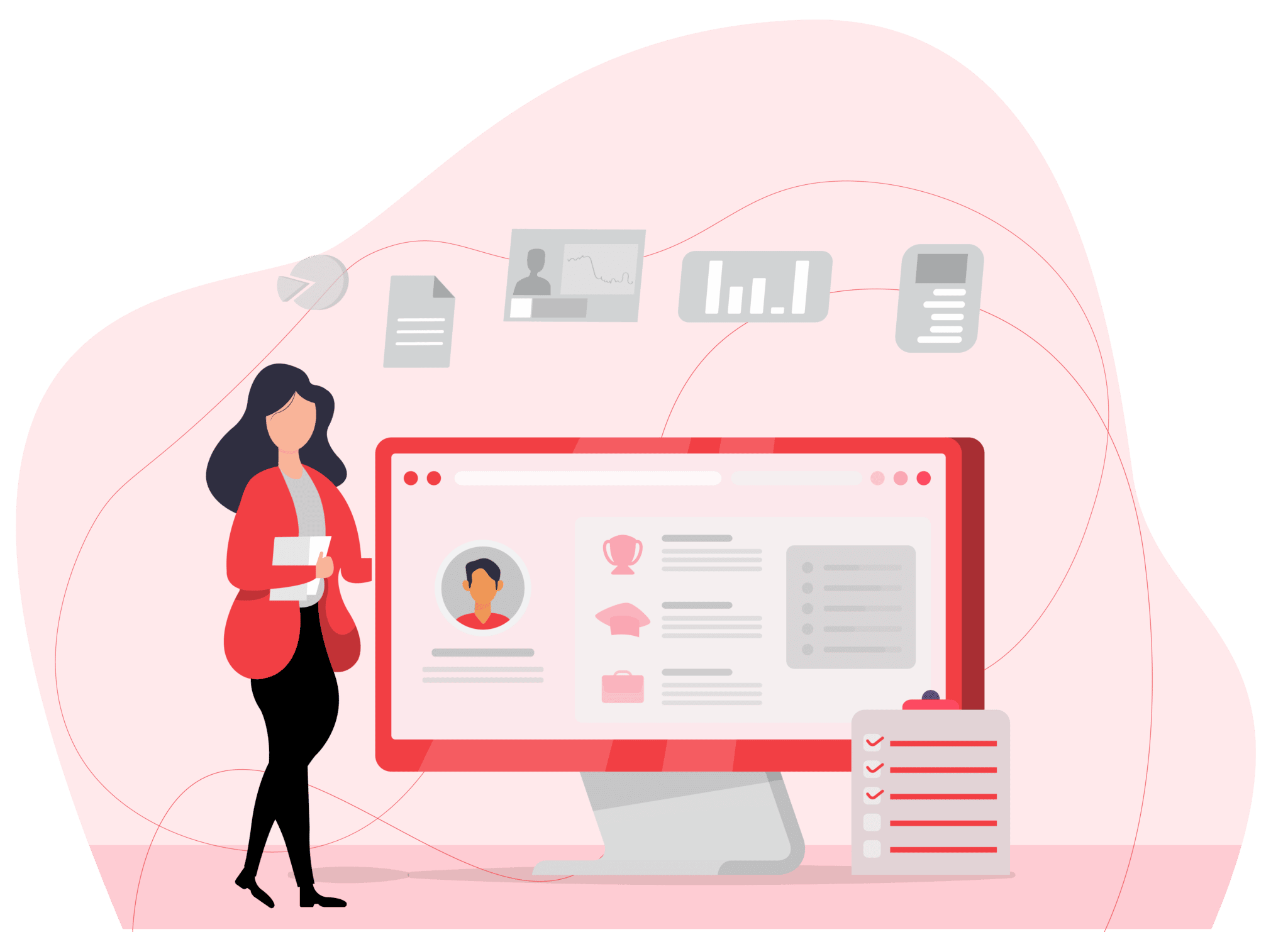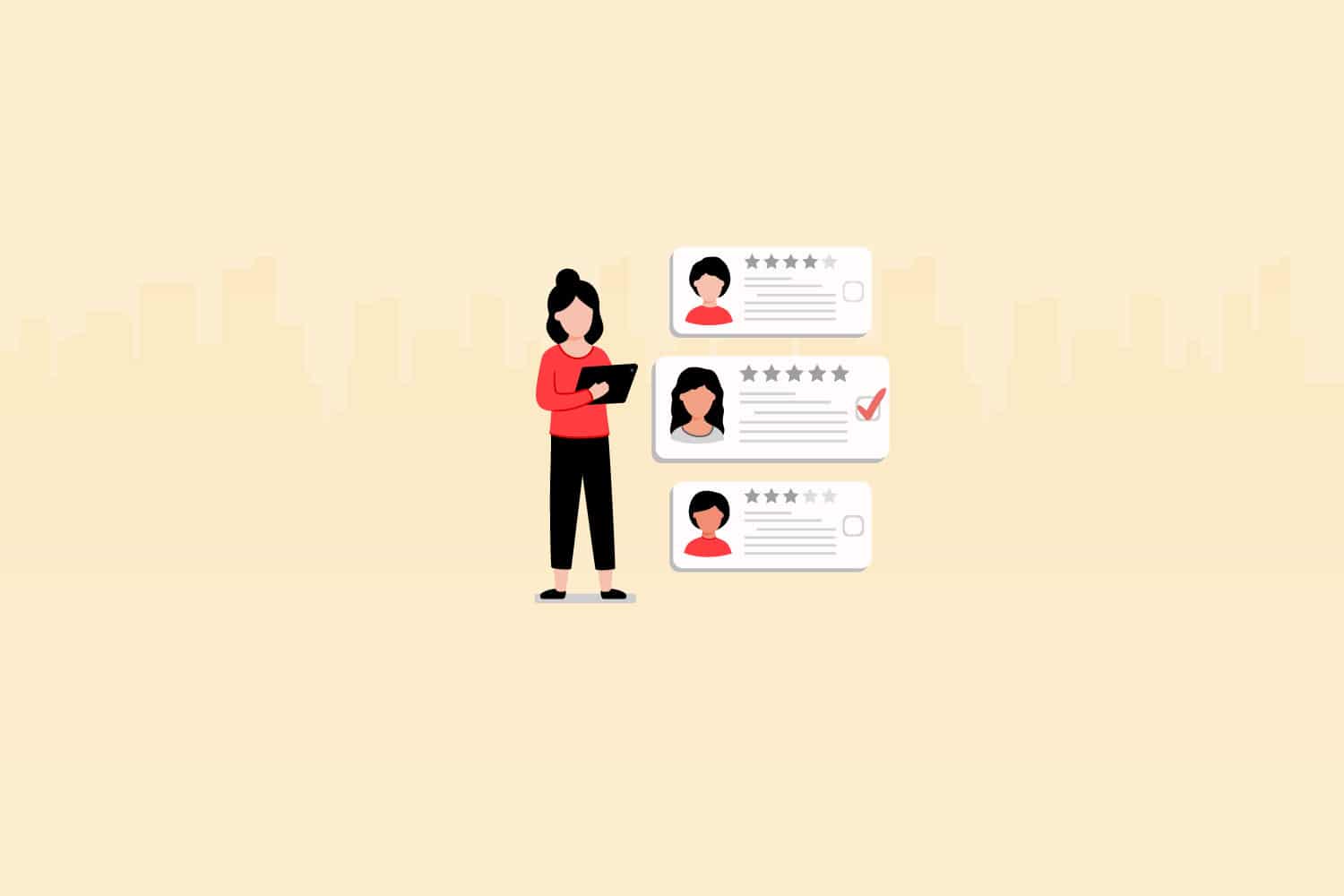In today’s dynamic business environment, the role of the Training and Development Coordinator has become increasingly crucial in driving organizational success. As the world of work rapidly evolves, companies are recognizing the need to invest in their employee’s growth and development to remain competitive. The recruitment trends for Training and Development Coordinators have seen a significant upsurge, reflecting the growing importance of this role.
According to recent analytics, there has been a substantial increase in job postings and hiring activity for Training and Development Coordinators across industries. This demand is driven by the recognition that a skilled and adaptable workforce is the key to achieving long-term business goals. In this landscape, HR professionals and CXOs play a vital role in identifying and selecting the right candidates for this critical position, ensuring that their organizations can effectively nurture talent and foster continuous learning.
Here are the top 60 Training and Development Coordinator interview questions to ask job applicants:
15 general interview questions for the Training and Development Coordinator
- Can you describe your experience in developing and implementing training programs?
- How do you assess training needs within an organization?
- Can you provide an example of a successful training program you designed and delivered? What was the outcome?
- How do you measure the effectiveness of training initiatives?
- How do you stay updated with the latest trends and best practices in training and development?
- Can you share your approach to creating a learning culture within an organization?
- How do you collaborate with stakeholders to identify training requirements and align them with business objectives?
- Can you explain your process for selecting and evaluating external training vendors?
- How do you ensure training programs are engaging and meet the diverse learning needs of employees?
- How do you handle resistance to training from employees or managers?
- Can you provide an example of a time when you had to manage a tight training budget? How did you make the most of limited resources?
- How do you leverage technology and digital tools in training and development initiatives?
- Can you discuss your experience in designing and delivering virtual or remote training programs?
- How do you support employees in applying newly acquired skills and knowledge on the job?
- Can you explain your approach to evaluating the return on investment (ROI) of training programs?
5 sample answers to general interview questions for the Training and Development Coordinator
- Can you describe your experience in developing and implementing training programs?
Look for candidates who have a strong understanding of the entire training program development cycle, including needs assessment, design, delivery, and evaluation.
Example answer: “In my previous role as a Training and Development Coordinator, I developed and implemented comprehensive training programs for a multinational company. This involved conducting thorough needs assessments, collaborating with subject matter experts to design engaging content, delivering interactive training sessions, and evaluating the effectiveness of the programs through feedback surveys and performance metrics. One of my successful programs focused on enhancing leadership skills, resulting in a 20% increase in employee satisfaction scores and a 15% improvement in team productivity.”
- How do you measure the effectiveness of training initiatives?
Seek candidates who are knowledgeable about different evaluation methods, such as surveys, assessments, and performance metrics, to determine the impact of training on individual and organizational outcomes.
Example answer: “To measure the effectiveness of training initiatives, I employ a multi-faceted approach. I utilize post-training surveys to gather participants’ feedback and gauge their satisfaction with the content and delivery. Additionally, I conduct pre-and post-training assessments to assess knowledge gain and skill improvement. Furthermore, I collaborate with managers to track performance metrics, such as productivity, quality, and customer satisfaction, to determine the impact of training on key organizational outcomes.”
- How do you collaborate with stakeholders to identify training requirements and align them with business objectives?
Look for candidates who can demonstrate effective communication and collaboration skills, as well as the ability to align training initiatives with organizational goals.
Example answer: “Collaborating with stakeholders is a crucial aspect of my role as a Training and Development Coordinator. I engage in regular meetings and discussions with department heads, managers, and employees to understand their training needs and align them with the organization’s strategic objectives. By actively involving stakeholders, I ensure that the training programs I design and deliver address the specific skills and knowledge gaps while aligning with the broader business goals. An example of this collaboration was when I partnered with the sales team to develop a tailored product training program, resulting in a 30% increase in sales revenue within three months of implementation.”
- How do you ensure training programs are engaging and meet the diverse learning needs of employees?
Look for candidates who can demonstrate creativity and adaptability in designing training programs that cater to different learning styles and preferences.
Example answer: “To ensure training programs are engaging and inclusive, I employ a variety of instructional methods and delivery formats. I incorporate interactive activities, case studies, group discussions, and multimedia elements to cater to diverse learning styles. Additionally, I utilize technology-based solutions, such as e-learning modules and virtual simulations, to provide flexibility and accessibility. Moreover, I encourage feedback and conduct post-training assessments to continuously improve the learning experience and address individual learning needs.”
- How do you leverage technology and digital tools in training and development initiatives?
Seek candidates who are familiar with various digital tools and platforms for creating interactive and effective training experiences.
Example answer: “I strongly believe in leveraging technology to enhance training and development initiatives. I have extensive experience in using learning management systems (LMS) to deliver online courses and track learners’ progress. I also incorporate gamification elements, such as quizzes and badges, to increase engagement and motivation. Additionally, I explore virtual reality (VR) and augmented reality (AR) solutions to create immersive learning experiences. For instance, in a recent training program, I utilized VR simulations to provide hands-on practice in a safe environment, resulting in a 40% reduction in on-the-job errors among participants.”
15 behavioral interview questions for a Training and Development Coordinator
- Tell me about a time when you had to design a training program from scratch. How did you determine the training objectives and ensure they aligned with organizational goals?
- Describe a situation where you had to manage resistance from employees or managers during a training initiative. How did you handle it?
- Can you share an example of a training program you developed that resulted in measurable improvements in employee performance or productivity? How did you measure the impact?
- Tell me about a time when you faced budget constraints while planning a training program. How did you make the most of limited resources without compromising on quality?
- Describe a situation where you had to adapt a training program to meet the needs of a diverse group of learners. How did you ensure inclusivity and engagement?
- Can you give an example of a time when you successfully collaborated with stakeholders to identify training needs and ensure the program’s effectiveness?
- Tell me about a challenging training delivery situation you encountered. How did you adjust your approach to ensure participants’ understanding and engagement?
- Describe a time when you used technology or digital tools to enhance a training program. What was the outcome, and how did participants respond to it?
- Can you share a situation where you needed to evaluate external training vendors? How did you select the right vendor and ensure their offerings aligned with organizational requirements?
- Tell me about a time when you faced resistance to change during a training initiative. How did you address this resistance and gain buy-in from employees?
- Describe a situation where you had to handle a training program with a large number of participants. How did you manage logistics, engagement, and individual learning needs effectively?
- Can you share an example of a time when you incorporated feedback from participants to improve a training program? How did you assess and implement their suggestions?
- Tell me about a time when you had to design and deliver a virtual training program. How did you ensure participants’ engagement and interaction in a remote setting?
- Describe a situation where you successfully promoted a learning culture within an organization. What strategies did you implement, and what were the outcomes?
- Can you share an example of a time when you had to deal with a training program that didn’t meet its objectives or expectations? How did you analyze the situation, identify areas for improvement, and make necessary adjustments?
5 sample answers to behavioral interview questions for the Training and Development Coordinator
- Tell me about a time when you had to design a training program from scratch. How did you determine the training objectives and ensure they aligned with organizational goals?
Look for candidates who can demonstrate their ability to assess training needs, align objectives with organizational goals, and develop a comprehensive program.
Example answer: “In a previous role, I was tasked with designing a sales training program. I began by conducting thorough needs assessments, including surveys and interviews with sales teams and managers. Through these assessments, I identified the specific skill gaps and performance challenges. To align the training objectives with organizational goals, I collaborated with sales leaders to understand their vision and priorities. Based on this input, I developed clear and measurable training objectives that focused on improving product knowledge, sales techniques, and customer relationship management. By aligning the program’s objectives with the company’s strategic goals, we achieved a 15% increase in sales revenue within six months of implementing the training.”
- Can you share an example of a training program you developed that resulted in measurable improvements in employee performance or productivity? How did you measure the impact?
Seek candidates who can provide concrete examples of training programs they have developed, along with measurable outcomes and their methodology for evaluating effectiveness.
Example answer: “In my previous role, I developed a customer service training program. To measure its impact, I utilized a combination of pre-and post-training assessments, as well as performance metrics. Before the training, I conducted a baseline assessment to gauge employees’ knowledge and skills. After the program, I conducted a follow-up assessment to measure the knowledge gain and skill improvement. Additionally, I collaborated with the quality assurance team to track key performance indicators such as customer satisfaction scores, average handling time, and first-call resolution rate. The results were impressive, with a 20% increase in customer satisfaction scores, a 15% reduction in average handling time, and a 10% improvement in first-call resolution rate.”
- Describe a situation where you had to adapt a training program to meet the needs of a diverse group of learners. How did you ensure inclusivity and engagement?
Look for candidates who can demonstrate their ability to customize training programs to accommodate diverse learning styles, preferences, and cultural backgrounds.
Example answer: “In a multinational organization, I was responsible for developing a leadership development program for a diverse group of participants from different regions. To ensure inclusivity and engagement, I employed a blended learning approach that incorporated various instructional methods. This included interactive workshops, e-learning modules, group discussions, and case studies. I also ensured the program materials were culturally sensitive and provided translations for non-native English speakers. Additionally, I encouraged participants to share their experiences and perspectives, fostering an inclusive learning environment. Feedback from the program evaluation surveys indicated high participant satisfaction, with 90% of participants reporting that the program met their learning needs.”
- Can you share a situation where you needed to evaluate external training vendors? How did you select the right vendor and ensure their offerings aligned with organizational requirements?
Seek candidates who can demonstrate their ability to assess and select external training vendors based on organizational needs, quality standards, and cost-effectiveness.
Example answer: “In a previous role, we were in need of an external vendor to deliver technical training to our IT department. To ensure we selected the right vendor, I developed a comprehensive evaluation process. First, I created a vendor selection criteria document that outlined our requirements, including the vendor’s expertise, training methodologies, client references, and cost. We shortlisted potential vendors and conducted thorough interviews and demonstrations. We also reached out to their previous clients for feedback on the quality of their training. Based on this evaluation, we selected a vendor that had a strong track record, relevant industry experience, and positive client testimonials. This ensured that their offerings aligned with our organizational requirements and resulted in a successful training program.”
- Tell me about a time when you successfully promoted a learning culture within an organization. What strategies did you implement, and what were the outcomes?
Look for candidates who can demonstrate their ability to foster a culture of continuous learning by implementing initiatives, such as mentoring programs, knowledge sharing platforms, or learning events.
Example answer: “In my previous organization, I noticed a lack of emphasis on continuous learning and knowledge sharing among employees. To promote a learning culture, I introduced several initiatives. Firstly, I implemented a mentorship program that paired experienced employees with newer team members to facilitate knowledge transfer and career development. Secondly, I established an internal knowledge-sharing platform where employees could share articles, resources, and best practices. Additionally, I organized monthly lunch-and-learn sessions where subject matter experts delivered interactive presentations on relevant topics. These initiatives significantly improved employee engagement and knowledge sharing. Employee satisfaction surveys showed a 30% increase in satisfaction scores related to learning and development initiatives.”
15 personality interview questions for the Training and Development Coordinator
- How do you prioritize your workload and manage multiple training projects simultaneously?
- Can you describe a time when you had to adapt your training approach to accommodate different learning styles or skill levels?
- How do you ensure that training programs are engaging and effective for participants?
- How do you stay updated on the latest trends and best practices in training and development?
- Can you share an example of a time when you had to handle resistance or skepticism from employees regarding a training program? How did you address it?
- How do you measure the success and impact of your training initiatives?
- Can you describe a situation where you had to collaborate with multiple stakeholders to design and implement a training program?
- How do you handle tight deadlines and unexpected changes in training schedules or requirements?
- Can you provide an example of a creative or innovative training solution you developed to address a specific organizational need?
- How do you ensure that training materials and resources are accessible and inclusive for a diverse workforce?
- Can you describe a situation where you had to provide constructive feedback to a trainer or facilitator? How did you approach it?
- How do you build and maintain relationships with external training vendors or subject matter experts?
- Can you share an example of a time when you had to manage a limited training budget and still deliver high-quality programs?
- How do you foster a culture of continuous learning and development within an organization?
- Can you discuss a challenging situation you faced during a training session and how you handled it effectively?
5 sample answers to personality interview questions for Training and Development Coordinator
- How do you prioritize your workload and manage multiple training projects simultaneously?
Look for candidates who can demonstrate strong organizational and time management skills, as well as an ability to effectively prioritize tasks based on importance and deadlines.
Example answer: “To prioritize my workload, I start by assessing the urgency and impact of each training project. I create a detailed project plan with clear milestones and deadlines. Then, I allocate my time and resources accordingly, focusing on high-priority initiatives first. I also leverage project management tools to track progress and ensure that I meet deadlines.”
- Can you describe a time when you had to adapt your training approach to accommodate different learning styles or skill levels?
Look for candidates who can demonstrate flexibility in their training methods and an understanding of different learning preferences. They should be able to provide examples of how they tailored their approach to meet the needs of diverse participants.
Example answer: “In a recent training program, I had a group of participants with varied learning styles and skill levels. To accommodate them, I incorporated a mix of instructional methods, including visual aids, hands-on activities, and group discussions. I also provided additional resources and one-on-one coaching for those who needed extra support. By adapting my training approach, I was able to create an inclusive learning environment where everyone could engage and learn effectively.”
- How do you measure the success and impact of your training initiatives?
Look for candidates who can demonstrate a data-driven approach to measuring the effectiveness of their training programs. They should be able to describe specific metrics and evaluation methods they have used in the past.
Example answer: “To measure the success and impact of my training initiatives, I utilize a combination of quantitative and qualitative measures. I collect feedback from participants through post-training surveys and assessments to gauge their satisfaction and knowledge gain. Additionally, I track key performance indicators such as employee performance improvements, increased productivity, or reduced errors to assess the tangible impact of the training. These metrics provide valuable insights into the effectiveness of the programs and help me make data-backed decisions for future improvements.”
- Can you describe a situation where you had to collaborate with multiple stakeholders to design and implement a training program?
Look for candidates who can demonstrate strong interpersonal and communication skills, as well as the ability to work collaboratively with various stakeholders. They should be able to provide examples of their experience in managing relationships and coordinating efforts to deliver successful training programs.
Example answer: “In my previous role, I was tasked with designing and implementing a company-wide leadership development program. I collaborated with the HR team, department heads, and senior executives to gather input and align the program with organizational goals. We held regular meetings to discuss content, delivery methods, and logistics. By involving multiple stakeholders throughout the process, we were able to ensure buy-in, customize the program to meet specific needs, and achieve a successful rollout that received positive feedback from participants.”
- How do you foster a culture of continuous learning and development within an organization?
Look for candidates who can demonstrate a proactive approach to fostering a learning culture. They should be able to describe strategies they have used to encourage employees to embrace continuous learning and development opportunities.
Example answer: “To foster a culture of continuous learning, I believe in leading by example. I stay updated on industry trends and share relevant resources with the team. I also encourage managers to include learning and development goals in their performance conversations with employees. Additionally, I organize Lunch and Learn sessions and create internal knowledge-sharing platforms where employees can exchange expertise and learn from one another. By promoting a growth mindset and providing accessible learning opportunities, I believe we can inspire employees to continuously develop their skills and contribute to the overall success of the organization.”
When should you use skill assessments in your hiring process for Training and Development Coordinator?
Skill assessments can be highly beneficial in the hiring process for a Training and Development Coordinator. These assessments serve as valuable tools to evaluate candidates’ specific skills and competencies related to training and development. By incorporating skill assessments, employers can make more informed decisions and ensure that the selected candidate possesses the necessary capabilities to excel in the role.
Skill assessments are important because they provide objective and measurable insights into a candidate’s abilities. They go beyond the claims made on resumes or during interviews and allow employers to assess candidates’ practical knowledge, problem-solving skills, and critical thinking abilities. These assessments help identify candidates who have the required expertise to design, deliver, and evaluate effective training programs.
There are various assessments that can be used to evaluate the skills of Training and Development Coordinators. These can include:
- Training Needs Analysis
This assessment measures a candidate’s ability to identify organizational training needs, conduct gap analyses, and develop training plans that align with business objectives.
- Instructional Design Assessment
This assessment evaluates a candidate’s proficiency in designing engaging and impactful training materials, including content development, instructional strategies, and assessment methods.
- Facilitation Skills Assessment
This assessment assesses a candidate’s ability to facilitate training sessions effectively, manage group dynamics, engage participants, and handle questions or challenges.
- Training Evaluation Assessment
This assessment gauges a candidate’s understanding of training evaluation techniques, including the ability to design and implement post-training assessments, measure training effectiveness, and provide recommendations for improvement.
By utilizing skill assessments tailored to the specific requirements of the Training and Development Coordinator role, employers can gain deeper insights into a candidate’s abilities, make more accurate hiring decisions, and ensure that the selected individual has the necessary skills to drive impactful learning and development initiatives within the organization.
Use our interview questions and skill tests to hire talented Training and Development Coordinator
Unlock the potential of your hiring process with Testlify’s comprehensive skill assessments and interview questions specifically designed for Training and Development Coordinator.
Our extensive test library offers a wide range of assessments, including cognitive function, personality, situational judgment, programming, and more. By leveraging these assessments, you can objectively evaluate candidates’ abilities, ensuring you shortlist the most talented individuals efficiently.
To further enhance your hiring process, we invite you to book a free 30-minute live demo. Our expert team will guide you through the platform, showcasing relevant skill tests tailored to your hiring needs. With our support, you can streamline candidate selection, saving valuable time and resources.
Ready to find the perfect fit for your Training and Development Coordinator role? Testlify provides the tools you need to make informed hiring decisions. Explore our skill assessments and interview questions today to uncover exceptional talent for your team.








